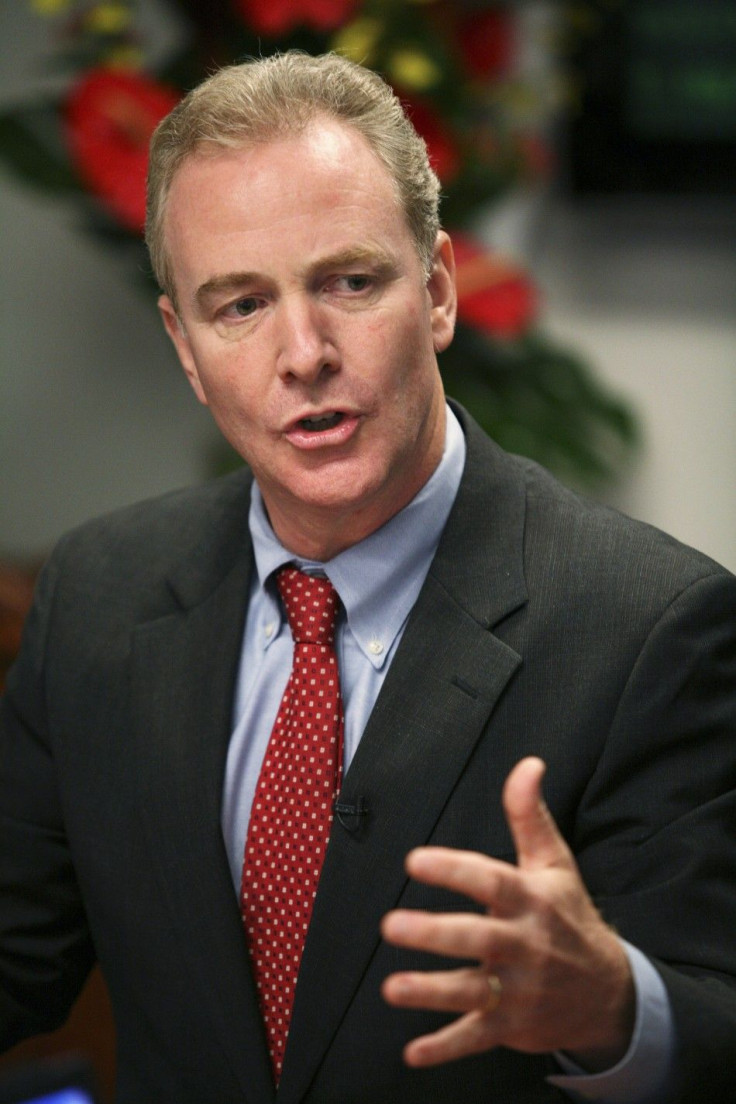Cutting The Deficit Means Better Benefits For The Next Generation
Opinion

Nothing matters but getting the next great fix. It doesn’t matter how we get it, as long as we get it. The future doesn’t matter as long as we get high immediately. In this case, the drug of choice is government money, and the examples are legion.
The Congressional Budget Office, responding to a request from Congressman Chris Van Hollen, D-Md., said this week that while cutting government spending now will marginally hurt growth in the next few years, in future years it will help the economy grow.
“Although output would be greater and employment higher in the next few years if the spending reductions under current law were reversed,” according to the CBO letter to Van Hollen, “that policy would lead to greater federal debt, which would eventually reduce the nation’s output and income below what would occur under current law.”
But of course, that’s not the takeaway we’re seeing in the papers, so to speak, or hearing from politicians, who get their talking points from the papers -- or vice versa.
“CBO: Sequester cuts would cost up to 1.6M jobs through 2014,” The Hill said. And from the Wall Street Journal: “CBO Says Reversing Sequester Would Boost Employment, Output. From me? “Oh, %@#$^#.”
If there is a persistent war on anyone these days, it’s on our kids and grandkids. Every time we borrow a dollar, it costs us 10 future dollars -- sometimes more -- in debt service.
"It's the school district equivalent of a payday loan or a balloon payment that you might obligate yourself for," California State Treasurer Bill Lockyer said about one such arrangement common for school districts in the Golden State. "So you don't pay for, maybe, 20 years -- and suddenly you have a spike in interest rates that's extraordinary."
Last year, the Poway, Calif., school district borrowed $100 million with a repayment cost of $1 billion. And with Detroit’s recent bankruptcy -- a bankruptcy Obama said would never happen, especially if he held his breath and stomped his feet -- it’s just getting more expensive for taxpayers these days.
And let’s not forget about that rush to shift Chicago’s and Detroit’s union-negotiated retirement healthcare obligations from the cities to Obamacare; it’s from urban taxpayers to you. Add that to the tally our kids will pay, and then wait for every city controlled by Democrats to do the same thing.
What is to be done?
Well, here’s a couple of reports that John’s Budget Office, or JBO™, came up with that perhaps can help get us back on track. And since Democrats are so concerned about jobs, let’s concentrate on those.
“Although output would be greater and employment higher in the next few years, if Obamacare’s hastily passed, poorly constructed laws were reversed,” the salient portion of the JBO™ report said, “that policy reversal would immediately increase the nation’s output and income above what would occur under current law.”
And here’s a snippet from the JBO™ report on energy: “Although output would be greater and employment higher in the next few years if the nation actively pursued exploiting oil and gas reserves here in the U.S., that policy reversal would also lead to lower federal debt, which would immediately increase the nation’s output and income above what would occur under current policy.”
JBO™ also estimated that current policy reversal would create 10 million jobs and $15 trillion in GDP over 10 years. At least one major accounting firm agrees.
That means we could significantly reduce the deficit without drastically cutting benefits for a generation of Americans who are counting on it. It means we don’t have to raise taxes. Actually, it means we could go to some sort of a simplified tax code, like the fair or flat tax.
It means a prosperous, free and cool America.
John Ransom is finance editor at Townhall.com and the host of Ransom Notes, a nationally syndicated radio show covering the connection between politics and finance.
© Copyright IBTimes 2024. All rights reserved.





















